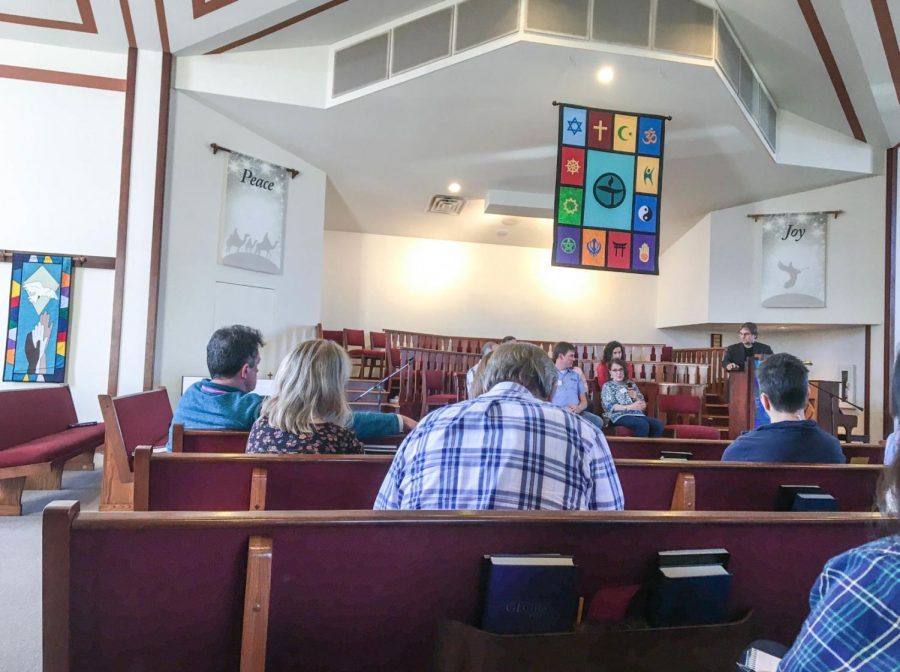Wildflower Church discusses potential impacts of CodeNext as draft 3 approaches
Austin City Council member Kathie Tovo reasserted her support for residents to express dissent from CodeNext, a land development code that has faced mounting concerns of furthering gentrification. The third draft is expected to be released next week, following a delay of more than two months.
Tovo spoke on a CodeNext panel also featuring representatives from Austin Habitat for Humanity and Go Austin Vamos Austin at Wildflower Church Feb. 4.
“The question about this one is complicated,” Tovo said on whether or not voters should sign a CodeNext petition. “But just fundamentally I support Austinites’ right to petition their government and to bring things forward.”
The petition is through Community not Commodity, a grassroots effort advocating for a waiting period and voter approval by election before CodeNext is enacted.
“There are some good things that we all can rally around because you’ve probably noticed we have some strong differences of opinion on certain issues,” Tovo said. “But one is we definitely need more resources for affordable housing.”
David King of the zoning and platting commission said that “every single bit of displacement, gentrification, traffic, environmental woes that have happened over the last generation happened under the current codes,” which haven’t been updated in 30 years.
“When you have so many high-income people moving here, they’re going to bid up the prices,” said King.
Another panelist, Jane Rivera, is former board member of Austin Parks and Recreation and voiced a plan she wants before city council votes on the code in April.
Known as the people’s plan, Rivera and others in a working group for real estate and housing propose six resolutions they are pushing the city to adopt before CodeNext.
Among those resolutions are to establish an interim land restrictions in East Austin to limit degradation of the natural and cultural environment, establish a low income housing trust fund, use public land to create more low income housing units on city properties, form a program in East Austin to restrict land use, have programs to allow seniors and low income people to return to their communities, and have a program to ensure environmental justice.
Members of the East Austin assembled to advocate for these resolutions most recently on Martin Luther King Jr. day.
Rivera said that the people’s plan is to help those “who still work in Austin help them have an opportunity to stay or have an opportunity to return. This is particularly important in the case of people of color.”
Carmen Pulido serves as the Mayor Pro Tem of the Latino Quality of Life Commission, and said that their creation of the city’s equity tool can assist those communities.
“If such a tool had been in place prior to zoning of Cesar Chavez in the ‘90s or the master planning of Riverside corridor, then displacement of thousands of people would not have happened,” Pulido said.
The CodeNext team has been undergoing training on the tool, said Pulido. “We would have been asking harder questions like will these changes promote equity or will they perpetuate and accelerate inequities?”







